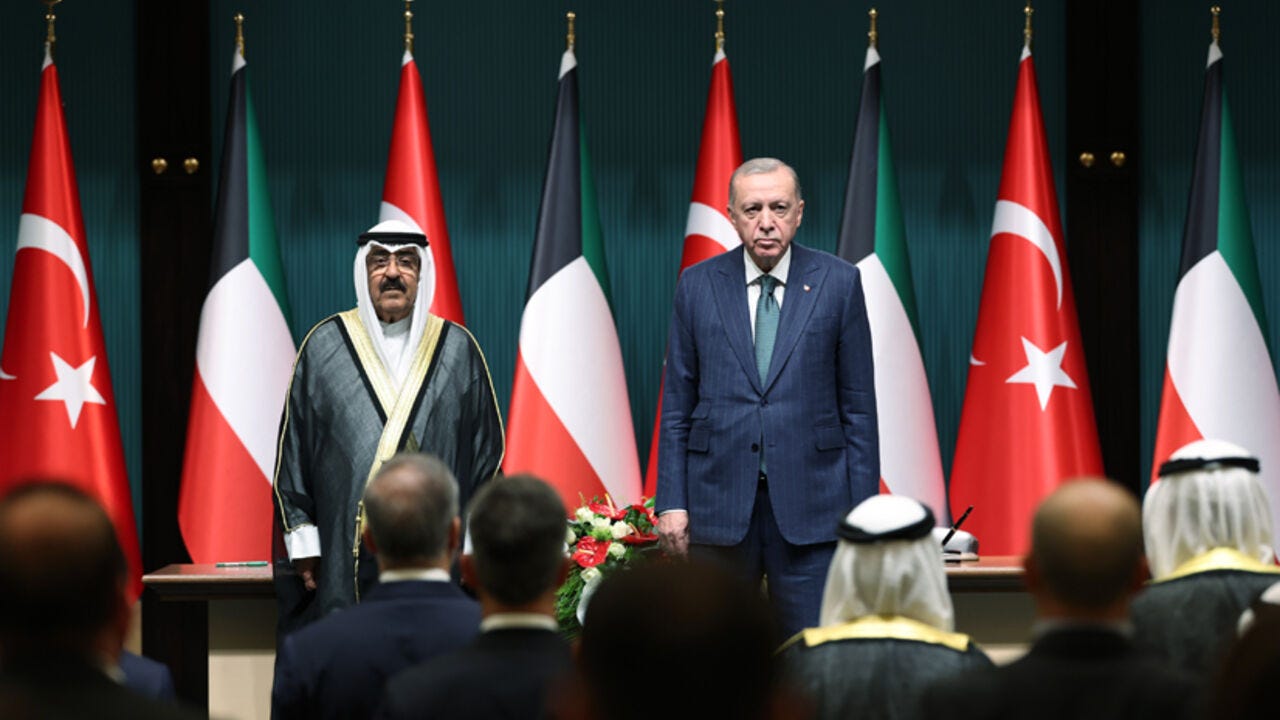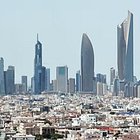Kuwait-Türkiye Accords: Pragmatic Push for IMEC
Ankara’s realignment with the Gulf reinforces its long-standing ambition to become a regional trade hub.
On 21 October, during President Recep Tayyip Erdoğan’s landmark visit to Kuwait -the first by a Turkish head of state in five years- Ankara and Kuwait signed four key agreements covering maritime governance, energy cooperation, direct investment incentives, and mutual recognition of seafarers’ qualifications. These accords mark a pragmatic convergence between Türkiye’s ambition to expand its influence in the Gulf through deeper defence and trade integration, including the alignment of Iraq’s Development Road with the India–Middle East–Europe Economic Corridor (IMEC), and Kuwait’s efforts to strengthen economic resilience amid ongoing fiscal pressures.
Slow & Steady: Ankara’s GCC Drive
This Kuwaiti-Turkish acceleration builds on recent milestones, including the 2024 launch of a joint strategic dialogue and reciprocal military delegations in late 2024 and early 2025. Talks with Emir Sheikh Mishal Al-Ahmad Al-Jaber Al-Sabah focused on the Gaza deadlock, with both endorsing US President Donald Trump’s 20-point peace blueprint, which featured hostage releases, Hamas demilitarisation, and reconstruction via a “Trump Board of Peace.” Yet, beneath this diplomacy lies Türkiye’s broader realignment: a calculated pivot amid domestic political crackdowns, including intensified media curbs and opposition arrests in 2025, as Ankara prepares for normalisation with Israel to unlock post-Gaza economic opportunities.
The partnership seeks to increase bilateral trade to more than $1 billion by 2026. Turkish companies such as Limak are targeting Kuwait’s $4.34 billion airport upgrade, while defence cooperation continues to deepen. Ankara’s drone and naval exports are strengthening Kuwait’s security posture amid renewed tensions between Iran and Israel. This development represents a continuation of Türkiye’s broader engagement with the Gulf, built on strong relations with Qatar, Saudi Arabia, and the United Arab Emirates, and transforming Ankara from a peripheral actor into a regional security anchor. The renewed focus on Kuwait exemplifies this strategy, using shared vulnerabilities to reinforce deterrence and expand trade flows.
Turkish Trade Hub
Crucially, the accords accelerate the development of IMEC’s Gulf corridor. By integrating Iraq’s $17 billion Development Road, a north–south route linking Basra to Europe via Türkiye, with IMEC’s east–west rail and maritime network, Türkiye positions itself as the central hub, diverting an estimated $20 billion in annual cargo from competitors such as China’s Belt and Road. The new seafarers’ certification scheme enhances operations at Mubarak Al-Kabeer Port, aligning Kuwaiti energy exports with Turkish logistics to ensure seamless flows from India to Europe. This initiative reflects former President Trump’s February summit commitment with India’s Prime Minister Modi to complete feasibility studies by 2026, further reinforcing Türkiye’s pivotal role in an emerging multipolar trade order.
In sum, these agreements represent a symbiotic realignment in which Kuwait’s survivalist pragmatism aligns with Türkiye’s aspirational regionalism, advancing trade corridor initiatives and ushering in a Turkish-led commercial era set to reshape a post-Gaza Middle East.




